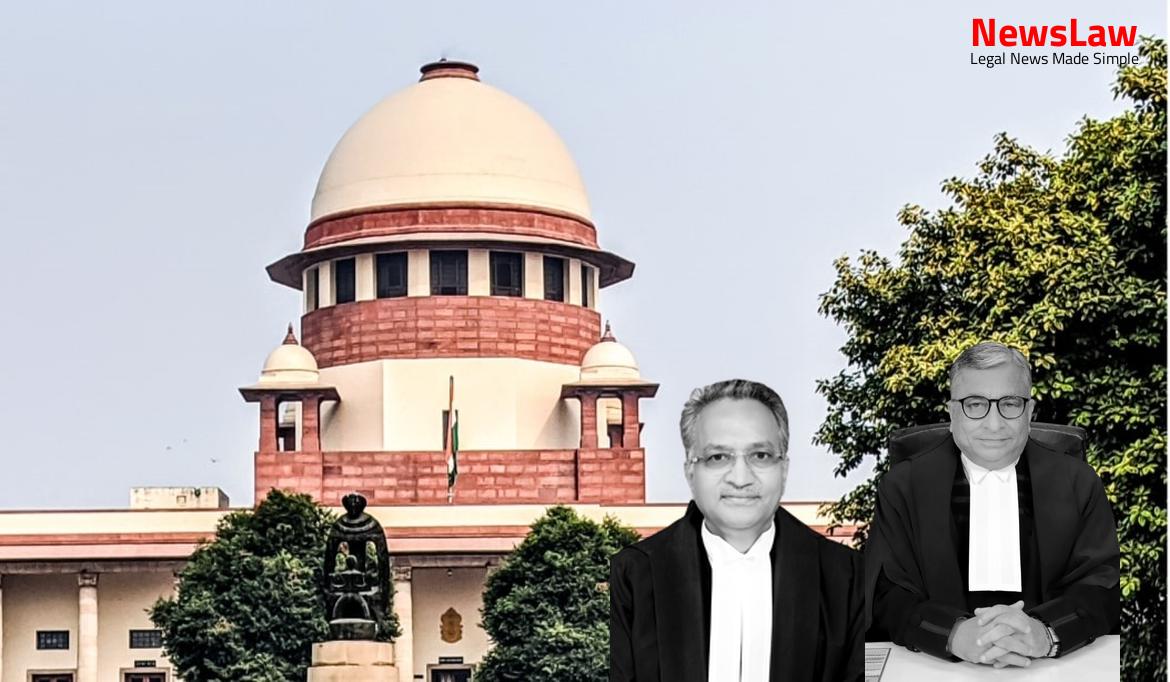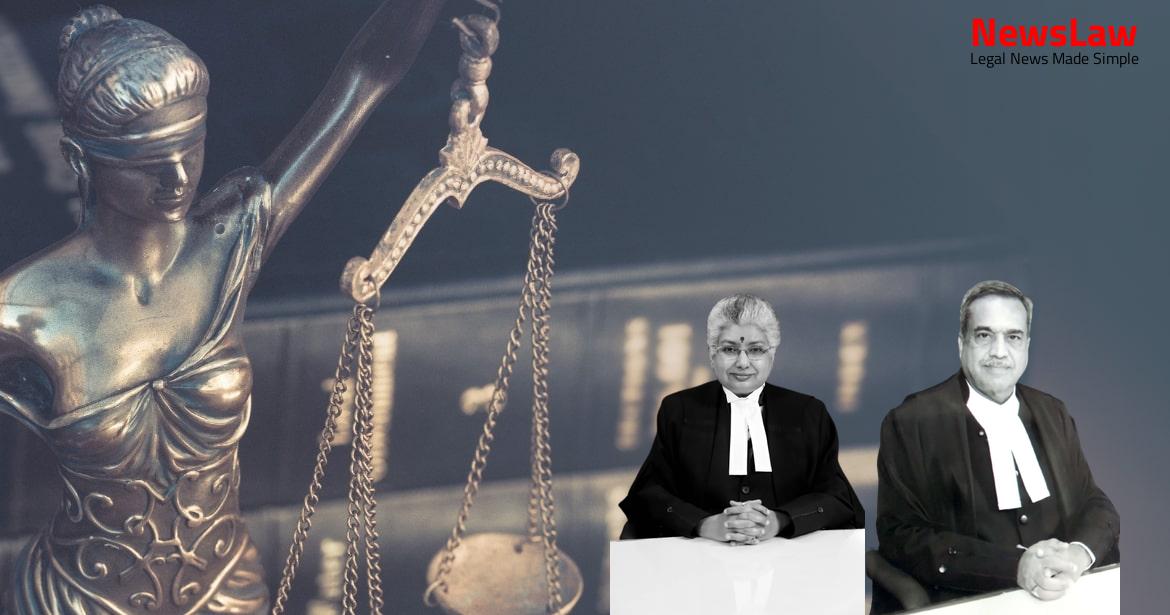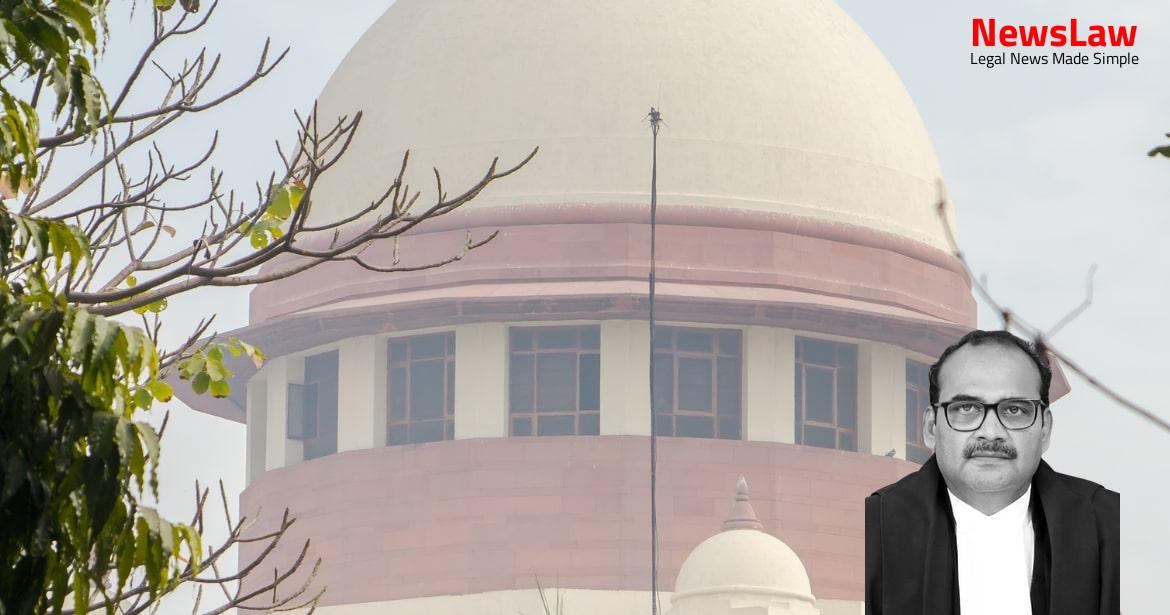The case delves into a complex legal situation entwined with a contempt petition and disputes among directors. The Court’s focus on legal analysis regarding civil contempt, compliance with statutory provisions, and the fiduciary duties of directors sheds light on the intricate nature of corporate governance disputes. Stay tuned to unravel the layers of this intriguing legal battle.
Facts
- The Facilitator, Mr. H.P. Ranina, was appointed by the CLB replacing Mr. H.S. Acharya.
- Mr. Ranina was granted all the powers previously held by Mr. Acharya as Facilitator cum-Advisor.
- The order prohibited the R1 Company from closing down flight catering units without prior permission from the Company Law Board.
- Shri H.P. Ranina was authorised to update the Register of Directors to conform with Court Orders and Resolutions.
- A report from Justice Lodha found the petitioner guilty of contempt, as per Court order dated 2 November 2001.
- Shri Ranina was to sign necessary documents for compliance; Shri Habib Rehman was appointed to advise him.
- The Court appointed Justice V.A. Mohta as a Mediator for dispute settlement among parties.
- Non-compliance of Companies Act provisions noted, extended filing time, and directed pending proceedings.
- Shri Habib Rehman appointed as Consultant to guide Shri Ranina; his decisions binding in case of disputes.
- The Court ordered M/s BSR & Company to prepare and audit Company accounts.
- CLB appointed Shri Arvind V. Savant as Facilitator for day-to-day operations.
- Orders clarifying roles of Shri Ranina, advising meetings and compliance with Acts, given.
- Contempt of Court Act applied, respondents convicted and sentenced to two months imprisonment.
- Orders for compliance of statutory provisions and audits issued, potential disputes resolved by Shri Ranina.
- Proceedings against respondents initiated in 2003, objections dismissed in 2007 judgment.
- Settlement between parties led to recall of guilty verdict for present petitioner.
- Directions for compliance with Court orders, else authorisation for Shri Ranina to act.
- CLB dismissed petition against Facilitator, imposed cost, and directed expedited case disposals.
- Books of Accounts found unaudited, additional directions given for compliance and audits.
Also Read: Legal Analysis on Diplomatic Immunity Exception Case
Arguments
- The petitioner’s argument is that the application for directions needs to be dismissed summarily.
- The petitioner contends that the respondents sought directions from a statutory body in good faith to ensure the welfare of the Company and its employees.
- The order appointing the Facilitator has been in place since April 10, 2008, and the Court has reiterated multiple times that it is not interfering with the CLB’s order appointing the Facilitator.
- The petitioner failed to challenge the CLB’s order when aggrieved, making it improper to now contest the enforceability of those orders.
- The respondents have consistently obtained the Facilitator’s consent for decisions made since 2008.
- The petitioner cannot claim proprietary rights over the Company’s property as a Director.
- The petitioner’s actions have been obstructive, leading to non-cooperation in the Company’s functioning.
- The petitioner’s refusal to cooperate required the respondents to take necessary steps for the Company’s benefit.
- There was no jurisdiction for the appointment of the so-called Facilitator, and it goes against previous court orders.
- The respondent’s actions were justified to prevent Company closure and financial repercussions.
- The CLB orders relied upon by the respondents are deemed irrelevant and outside the Court’s jurisdiction.
- The settlement between parties did not alter statutory regulations and fiduciary responsibilities of Directors towards the Company.
- The petitioner’s objections on the maintainability of proceedings before the CLB were not resolved before interim orders were passed.
- The settlement between parties did not nullify the statutory powers necessary for the Company’s function.
- Every Director holds a fiduciary duty towards the Company’s welfare.
- Respondents took absolute control of the company to the exclusion of the petitioner, contrary to the terms of the undertaking given to the court.
- Respondents were accused of acts similar to those that led to the guilt of contempt by previous respondents.
- The company was facing issues like unpaid salaries, employee unrest, and mismanagement attributed to the petitioner’s alleged misuse of consent decree as a tool of oppression.
- The petition by respondent No.1 was heard by CLB Chair and a facilitator was appointed to bring about consensus among directors for smooth business operations.
- Respondents claimed the petitioner was obstructing company functioning and acting with malicious intent.
- Petitioner’s son was mentioned to be working for a competitor, and the respondents alleged lack of cooperation from the petitioner for proper company functioning.
- Petitioner was accused of unreasonably withholding consent for routine decisions, leading to a management deadlock.
- Respondents argued that the petitioner was using consent terms as a veto power to create a deadlock in company transactions.
Also Read: Autonomy of Private Unaided Schools in Fee Determination
Analysis
- The Court was concerned with putting the house in order before hearing the contempt petition.
- The CLB passed interim orders to ensure the day-to-day operations of the company continue smoothly despite director disagreements.
- A mere objection to jurisdiction does not prevent the court from passing interim orders.
- The CLB appointed a Facilitator to resolve operational issues in the company.
- Rama Narang, the petitioner, filed for contempt and also sought the discharge of the Facilitator.
- The court appointed an independent Director to oversee financial management and compliance with statutory provisions.
- Interim orders passed by the court and CLB should be obeyed and can be punishable if violated.
- The court clarified that the orders issued would not disrupt the Facilitator’s functioning.
- The CLB’s actions were within jurisdiction and the respondents legitimately sought recourse to statutory remedies.
- The contempt notice was discharged as using legal remedies does not amount to contempt.
- Transactions over Rs. 10 lacs to be done through joint cheque signed by Rama and Ramesh/Rajesh
- No decisions affecting the Company to be made without consent of Rama and Ramesh/Rajesh
- Appointments of Directors/Executives to be approved by Rama and Ramesh/Rajesh
- Cash collections to be remitted to Company bank accounts
- All transactions to be made through cheques
- Bank accounts operated jointly by any two of Rama, Ramesh, and Rajesh
- Statutory records to be signed jointly by Rama and Ramesh or Rajesh
- Increase in Board of Directors requires mutual consent of Rama and Ramesh/Rajesh
- Appointment of independent director did not hinder the facilitator’s functioning.
- Contempt proceedings are not the same as execution proceedings under the Code of Civil Procedure.
- Punishment for contempt is warranted only in cases of deliberate disobedience.
- Disobedience under compelling circumstances may not lead to punishment.
- Observations from previous cases emphasize the need for wilful and intentional disobedience for contempt charges.
- The court must be cautious in finding contempt, considering all circumstances.
- Civil contempt involves wilful disobedience to court orders.
- Punishment for contempt requires proof of wilful disobedience.
- Contempt proceedings are quasi-criminal in nature, requiring the standard of proof like in criminal cases.
- Civil contempt can be avoided if disobedience is due to compelling circumstances.
- Ensuring disobedience is wilful and intentional is crucial before punishing contemnor.
- The contempt petition is deemed to be dismissed as it lacks merit.
- No directions under Article 142 of the Constitution are deemed necessary in this case.
- Parties advised to seek remedies available in law rather than invoking Article 142.
- The CLB’s observations regarding the petitioner’s qualification under the Act have not been challenged and thus hold weight.
- Arguments against the CLB’s observations lack merit and are rejected.
- The proceedings under the CLB are pending final adjudication, allowing parties to raise all issues including jurisdiction.
- The contempt petition is dismissed, and the matter is now transferred to the NCLT due to the Insolvency and Bankruptcy Code 2016 coming into force.
- Parties are advised to approach the NCLT for further orders in accordance with the law.
Also Read: Land Ownership Dispute Legal Analysis
Decision
- All pending IAs stand disposed of in aforesaid terms.
- Withdrawal of suits to this Court under Article 139-A of the Constitution of India.
- Records of suits to be transmitted to this Court within ten days.
- Parties directed to comply meticulously with undertakings given to the Court.
- Contempt petition addressed with warning of jail for violation of undertakings.
- Parties undertake to implement terms of ‘MINUTES OF CONSENT ORDER’ by 1.1.2002 with no further time sought.
- Operation of bank accounts as per compromise to begin from the current date.
- Suits and company petition to be posted for final formal orders on 8.1.2002 at 10.30 a.m.
Case Title: RAMA NARANG Vs. RAMESH NARANG (2021 INSC 25)
Case Number: CONMT.PET.(C) No.-000092-000092 / 2008



